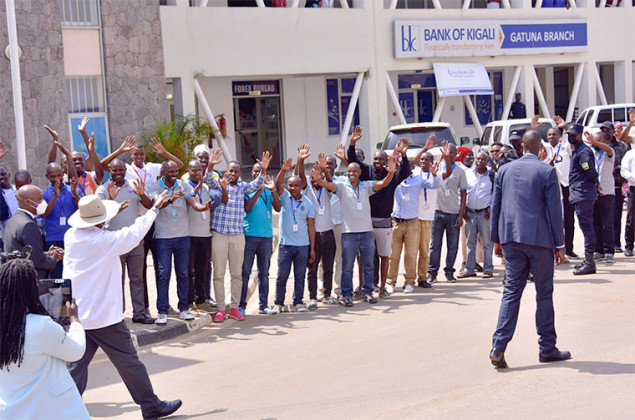KAMPALA, UGANDA: The closure of the Gatuna border with Uganda by Rwanda was illegal and contravened the East African Community Treaty, the East African Court of Justice has ruled.
A panel of three judges of the East African Court of Justice comprising Monica Mugenyi from Uganda, Audace Ngiye from Burundi, and Dr Charles Nyawello from South Sudan delivered the verdict read via a Zoom court session by justice Nyawello on Thursday.
The judges noted that the actions of the Rwandan government contravened provisions of the EAC treaty including Article 5, which lays down the objectives of the community, Article 6 on fundamental principles of the Community, and Article 7 which provides for the operational principles of the Community. In February 2019, Rwanda closed the Gatuna border, blocking the movement of people and goods from Uganda and Rwanda.
At first, Rwanda claimed that they had closed the border to pave for road construction works, which left several travelers including cargo trucks stuck at the border. The Rwandan government later accused Ugandan authorities of abducting, arbitrarily arresting, jailing, torturing, and illegally deporting Rwandans who come to Uganda.
Rwanda also accused Uganda of hosting, sponsoring, and facilitating terrorist groups, specifically the Rwanda National Congress (RNC) and The Democratic Forces for the Liberation of Rwanda (FDLR) – that have declared war on the Kigali government.
Rwanda issued an advisory warning to its citizens against travelling to Uganda, saying it cannot guarantee their safety while in Uganda. This prompted Kampala city lawyer, Steven Kalali to sue the Rwandan government on grounds of abusing the EAC treaty provision of free movement across borders, denying Rwandan citizens freedom to travel to a destination of their choice like Uganda, and obstructing trade between the two countries due to the border closure.
Speaking to journalists after the court session, Kalari expressed gratitude that the court determined the case in his favour. He said the ruling should work as a lesson to member states that when they are part of a treaty, they should respect its provisions.
Kalali, who was represented by a team of three lawyers led by Isaac Kenneth Muwanga had asked for cost but the panel ordered that all parties meet their own costs, arguing this was a matter of public interest.
The ruling has been overtaken by events since Rwanda opened its border in March this year following a meeting between the commander of Land forces and first son Muhoozi Kainerugaba and Rwandan President Paul Kagame in Kigali. Last week, Museveni for the first time in five years travelled to Rwanda for the Commonwealth Heads of Government Meeting (CHOGM) in Kigali.
If you would like your article/opinion to be published on Uganda’s most authoritative news platform, send your submission on: [email protected]. You can also follow DailyExpress on WhatsApp and on Twitter (X) for realtime updates.



